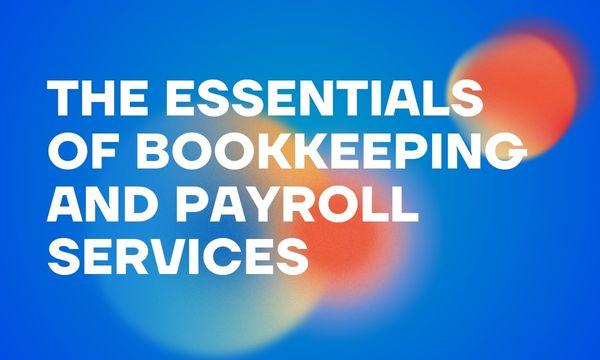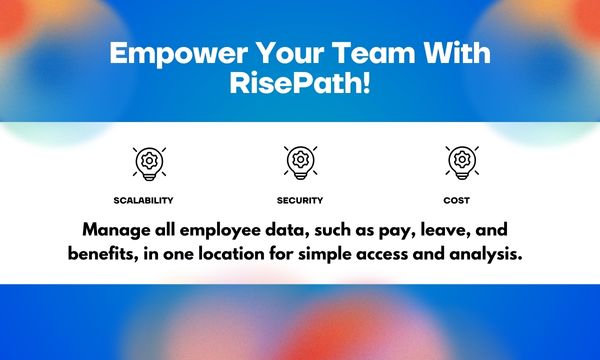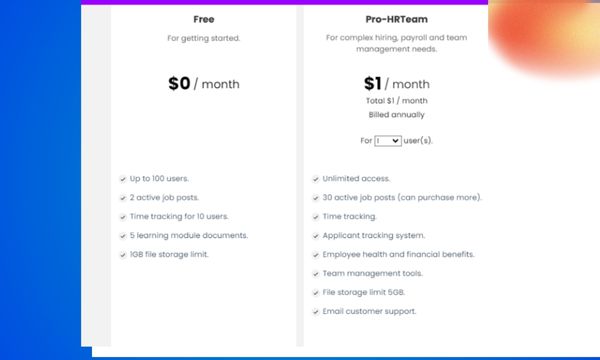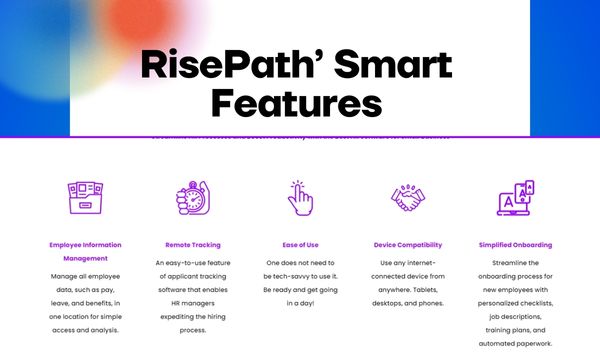Bookkeeping is the process of recording and organizing financial transactions of a business. It involves keeping track of all income and expenses, as well as maintaining accurate records of assets, liabilities, and equity. Bookkeeping provides a clear and detailed picture of a company’s financial health, allowing business owners to make informed decisions based on accurate financial data.
Bookkeeping is important for businesses for several reasons. Firstly, it helps businesses keep track of their financial transactions and maintain accurate records. This is crucial for monitoring cash flow, identifying trends, and making informed financial decisions. Additionally, bookkeeping is essential for tax compliance. Accurate and up-to-date financial records are necessary for preparing tax returns and ensuring that businesses meet their tax obligations.
Also Read: How to Develop the Best Sales Recruitment Strategy
Furthermore, bookkeeping provides valuable information for financial analysis and reporting. By maintaining accurate records, businesses can generate financial statements such as balance sheets and income statements. These statements provide insights into a company’s financial performance, profitability, and overall financial position. This information is vital for attracting investors, securing loans, and demonstrating the financial health of the business to stakeholders.
Overall, bookkeeping plays a fundamental role in the financial management of businesses. It provides a clear and organized record of financial transactions, ensures tax compliance, and enables informed decision-making. By maintaining accurate and up-to-date bookkeeping records, businesses can effectively manage their finances and drive long-term success.
The Importance of Bookkeeping and Payroll Services
Bookkeeping and payroll services play a crucial role in the financial management of businesses. They are essential for maintaining accurate and up-to-date records of a company’s financial transactions. By keeping track of income, expenses, and other financial activities, bookkeeping helps businesses monitor their financial health and make informed decisions. Payroll services, on the other hand, ensure that employees are paid accurately and on time, while also handling tax withholdings and other payroll-related tasks. Overall, these services are important for ensuring financial transparency and compliance with legal and regulatory requirements.
Accurate bookkeeping is vital for businesses of all sizes. It provides a clear picture of a company’s financial position, allowing owners and managers to assess their profitability, identify areas of improvement, and make informed financial decisions. Without proper bookkeeping, businesses may struggle to track their income and expenses, leading to financial mismanagement and potential legal issues. Similarly, payroll services are crucial for ensuring that employees are paid accurately and on time, which is essential for maintaining employee satisfaction and compliance with labor laws. By outsourcing these services to professionals, businesses can focus on their core operations while ensuring their financial records and payroll processes are handled efficiently.
Bookkeeping and payroll services also play a significant role in tax compliance. Accurate financial records are essential for preparing tax returns and meeting tax obligations. By maintaining organized and up-to-date books, businesses can easily provide the necessary information to accountants or tax professionals, minimizing the risk of errors or omissions in tax filings. Additionally, payroll services handle tax withholdings, ensuring that the correct amount of taxes is deducted from employees’ wages and remitted to the appropriate tax authorities. This helps businesses avoid penalties and legal issues related to payroll taxes.
Moreover, bookkeeping and payroll services provide businesses with valuable insights and reports that can aid in strategic decision-making. Through financial statements, businesses can analyze their revenue, expenses, and profitability, enabling them to identify trends, assess the success of marketing campaigns, and make adjustments to their operations. Payroll reports, on the other hand, provide information on labor costs, allowing businesses to evaluate employee productivity and manage their workforce effectively. These insights help businesses optimize their financial performance and drive growth.
In summary, bookkeeping and payroll services are of utmost importance for businesses. They ensure accurate financial records, facilitate tax compliance, and provide valuable insights for decision-making. By outsourcing these services to professionals, businesses can focus on their core operations while maintaining financial transparency, compliance, and efficiency.
Common Bookkeeping Mistakes and How to Avoid Them
One common bookkeeping mistake is not keeping accurate and up-to-date records. It is crucial to record all financial transactions promptly and accurately. This includes keeping track of income, expenses, invoices, receipts, and bank statements. By maintaining organized and accurate records, you can avoid errors and easily reconcile your accounts. Another common mistake is not reconciling bank statements regularly. Reconciliation involves comparing your records with the bank’s records to ensure they match. This process helps identify any discrepancies or errors, such as missing transactions or incorrect balances. By reconciling your bank statements regularly, you can catch mistakes early and prevent them from causing bigger issues down the line.
Also Read: Why Your Company Needs HR Management Software Solution
Failing to separate personal and business finances is also a common bookkeeping mistake. It is essential to have separate bank accounts and credit cards for your business to maintain clear financial records. Mixing personal and business expenses can lead to confusion and make it difficult to track your business’s financial health. By keeping your personal and business finances separate, you can easily distinguish between personal and business expenses and accurately assess your business’s profitability.
Not properly categorising expenses is another common bookkeeping mistake. It is important to assign the correct categories to each expense to accurately track your business’s financial performance. Using a standardized chart of accounts can help ensure consistency in categorizing expenses. By categorizing expenses correctly, you can generate accurate financial reports and make informed decisions based on your business’s financial data.
Choosing the Right Bookkeeping Software for Your Business
Choosing the right bookkeeping software for your business is crucial for maintaining accurate financial records and streamlining your bookkeeping processes. With numerous options available in the market, it can be overwhelming to make the right choice. To help you in this decision-making process, consider the following factors:
- Business Needs: Assess your business requirements and determine the specific features and functionalities you need in a bookkeeping software. Consider factors such as the size of your business, the complexity of your financial transactions, and the number of users who will be accessing the software.
- Scalability: Look for a bookkeeping software that can grow with your business. As your business expands, you may need additional features and capabilities. Ensure that the software you choose can accommodate your future needs and can easily integrate with other business tools or software.
- User-Friendliness: Consider the ease of use of the software. Look for a user-friendly interface that is intuitive and requires minimal training. The software should be easy to navigate and understand, allowing you to quickly perform tasks such as entering transactions, generating reports, and reconciling accounts.
- Integration: If you already use other business tools or software, ensure that the bookkeeping software you choose can seamlessly integrate with them. Integration eliminates the need for manual data entry and reduces the chances of errors, saving you time and effort.
- Security: Financial data is sensitive and confidential. It is crucial to choose a bookkeeping software that prioritizes data security. Look for software that offers robust security measures such as data encryption, regular backups, and user access controls to protect your financial information from unauthorized access or loss.
- Cost: Consider your budget and the cost of the bookkeeping software. Evaluate the pricing structure, whether it is a one-time purchase, a monthly subscription, or based on the number of users. Compare the features and pricing of different software options to find the one that offers the best value for your money.
By carefully considering these factors, you can choose the right bookkeeping software that aligns with your business needs, enhances your bookkeeping processes, and helps you maintain accurate financial records.
The Advantages of Cloud-Based Bookkeeping and Payroll Systems
Cloud-based bookkeeping and payroll systems offer several advantages over traditional on-premise systems. One major advantage is the accessibility they provide. With cloud-based systems, you can access your financial data and payroll information from anywhere with an internet connection. This means you can easily work remotely or collaborate with team members in different locations. It also allows for real-time updates, ensuring that everyone has access to the most up-to-date information.
Another advantage of cloud-based systems is the scalability they offer. As your business grows, your bookkeeping and payroll needs may increase. With cloud-based systems, you can easily scale up your services to accommodate the growth without the need for additional hardware or software installations. This flexibility allows you to adapt to changing business requirements without incurring significant costs or disruptions.
Cloud-based systems also provide enhanced security for your financial data and payroll information. Reputable cloud service providers employ advanced security measures, such as encryption and regular data backups, to protect your sensitive information. This can be especially beneficial for small businesses that may not have the resources to invest in robust security measures on their own. Additionally, cloud-based systems offer better disaster recovery options, as your data is stored in multiple locations, reducing the risk of data loss in case of a hardware failure or natural disaster.
Cost savings is another advantage of cloud-based bookkeeping and payroll systems. With cloud-based systems, you eliminate the need for expensive hardware purchases and ongoing maintenance costs. Additionally, you can often choose a subscription-based pricing model, which allows you to pay for only the services and features you need. This can be particularly beneficial for small businesses with limited budgets, as it allows them to access advanced bookkeeping and payroll functionalities at a fraction of the cost of traditional systems.
In conclusion, cloud-based bookkeeping and payroll systems offer numerous advantages, including accessibility, scalability, enhanced security, and cost savings. By leveraging the power of the cloud, businesses can streamline their financial processes, improve collaboration, and focus on their core operations.
Conclusion
In conclusion, bookkeeping and payroll services play a crucial role in the financial management of businesses. By accurately recording and organizing financial transactions, bookkeeping ensures that businesses have a clear picture of their financial health. Payroll services, on the other hand, ensure that employees are paid accurately and on time, while also handling tax withholdings and other payroll-related tasks. Understanding the importance of bookkeeping and payroll services is essential for any business owner or manager, as it allows them to make informed financial decisions and maintain compliance with tax laws and regulations.
By outsourcing bookkeeping and payroll services to professionals, businesses can save time and resources. Bookkeeping and payroll tasks can be time-consuming and complex, requiring specialized knowledge and attention to detail. By entrusting these tasks to experts, businesses can focus on their core operations and leave the financial management to professionals who are well-versed in bookkeeping and payroll regulations. This not only ensures accuracy and efficiency but also reduces the risk of errors and penalties.
Furthermore, understanding bookkeeping and payroll services can help businesses maintain compliance with tax laws and regulations. Payroll taxes, for example, can be complex and subject to frequent changes. By having a solid understanding of payroll services, businesses can ensure that they are properly calculating and remitting payroll taxes, avoiding potential penalties and legal issues. Similarly, accurate bookkeeping practices help businesses prepare for tax season and provide the necessary documentation in case of an audit.
In conclusion, bookkeeping and payroll services are essential for businesses of all sizes. They provide accurate financial records, ensure timely and accurate payment of employees, and help businesses maintain compliance with tax laws and regulations. By understanding the importance of bookkeeping and payroll services, businesses can make informed financial decisions, save time and resources, and avoid potential penalties and legal issues. Investing in professional bookkeeping and payroll services is a wise decision for any business owner or manager who wants to focus on their core operations while ensuring their financial management is in capable hands.




Comments are closed, but trackbacks and pingbacks are open.